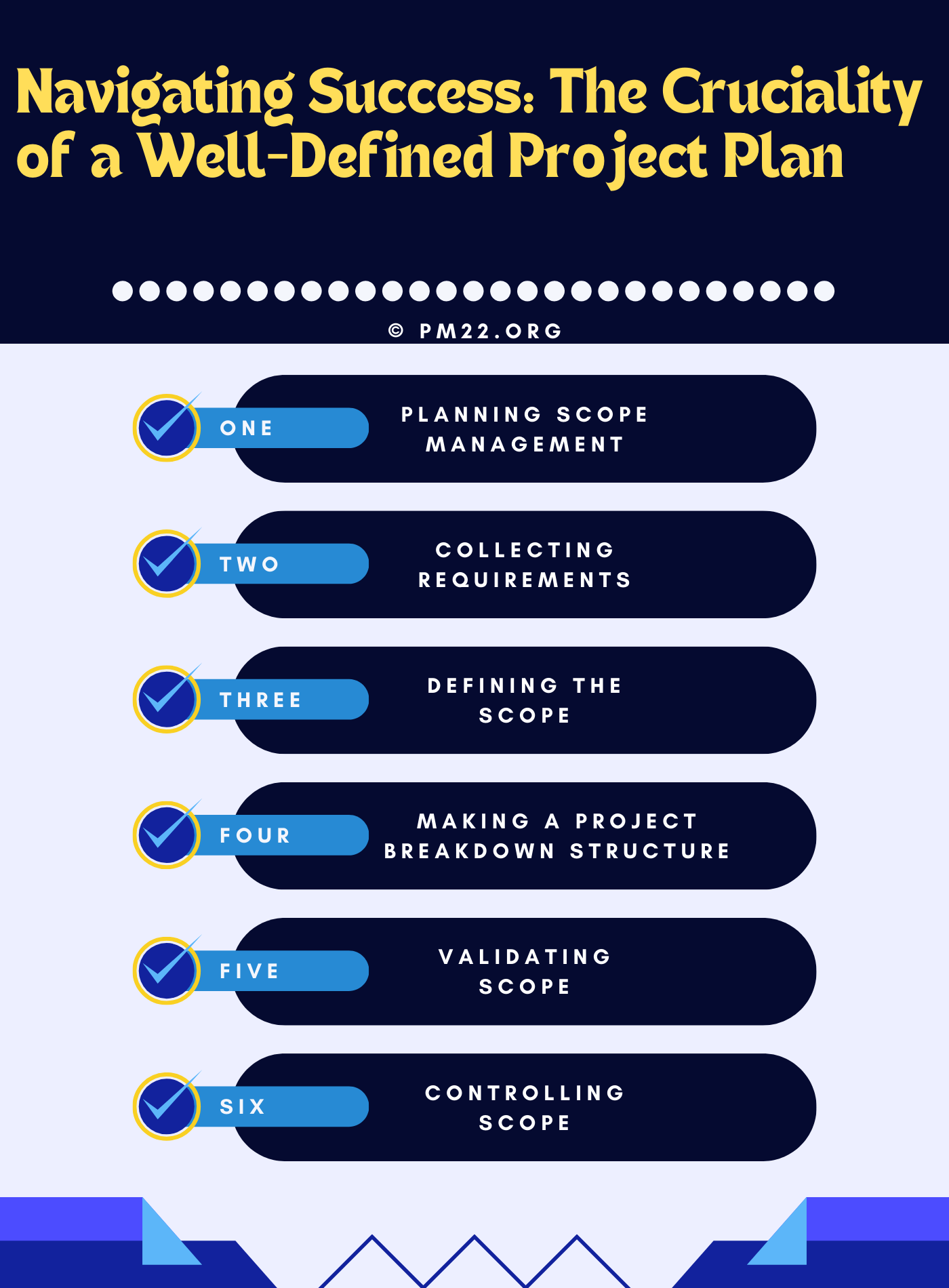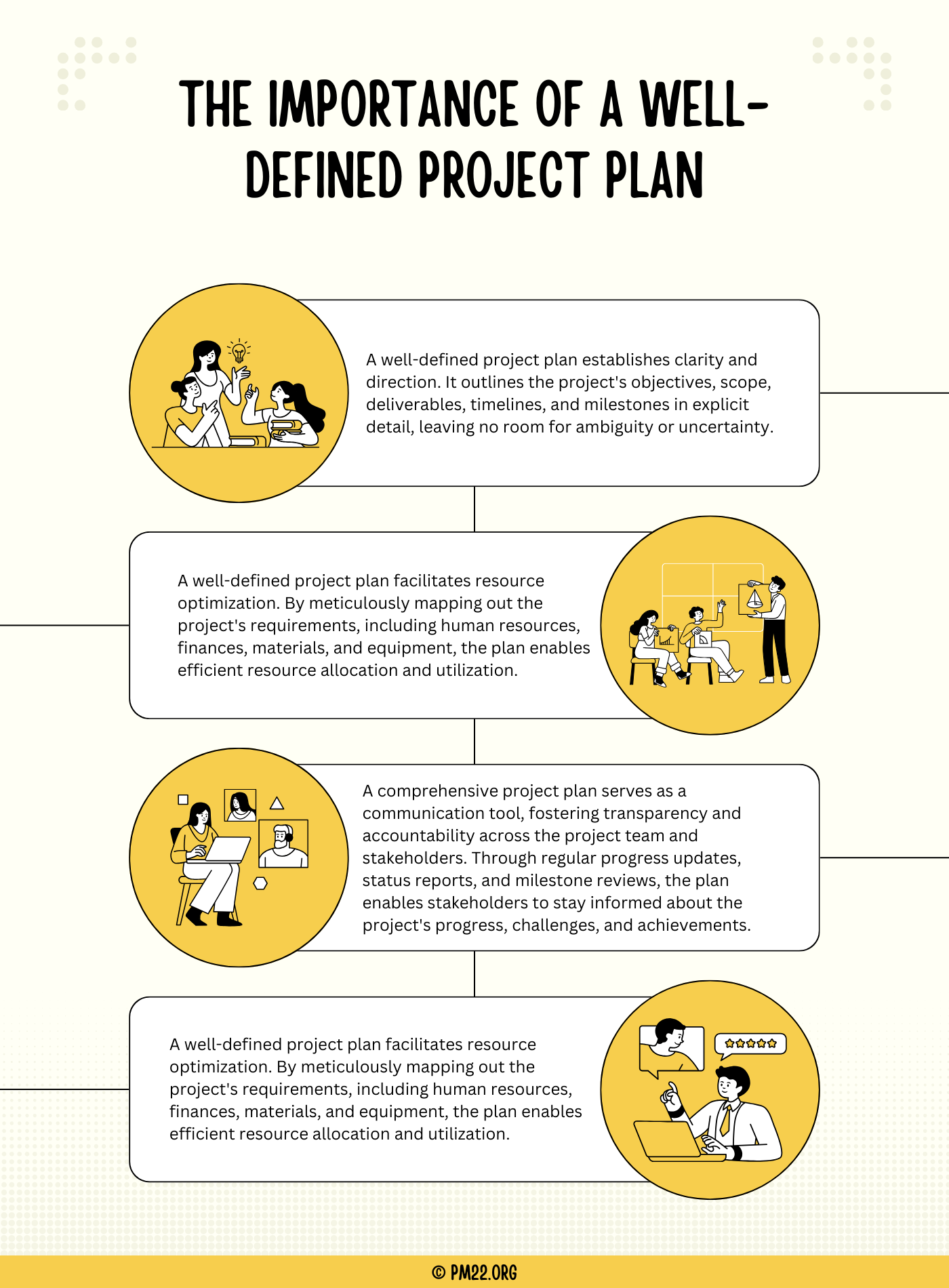 In the realm of project management, success is not merely a matter of chance; it’s a consequence of meticulous planning and execution. At the core of any successful project lies a well-defined project plan, serving as the roadmap that guides the team through every phase of the endeavor. Whether it’s building a skyscraper, launching a marketing campaign, or developing a new software application, a comprehensive project plan is the cornerstone upon which triumph is built.
In the realm of project management, success is not merely a matter of chance; it’s a consequence of meticulous planning and execution. At the core of any successful project lies a well-defined project plan, serving as the roadmap that guides the team through every phase of the endeavor. Whether it’s building a skyscraper, launching a marketing campaign, or developing a new software application, a comprehensive project plan is the cornerstone upon which triumph is built.
First and foremost, a well-defined project plan establishes clarity and direction. It outlines the project’s objectives, scope, deliverables, timelines, and milestones in explicit detail, leaving no room for ambiguity or uncertainty. This clarity fosters a shared understanding among team members, stakeholders, and sponsors, aligning everyone toward a common goal. With a clear direction in place, the team can channel their efforts efficiently, minimizing the risk of miscommunication, confusion, or divergence from the project’s core objectives.
Moreover, a robust project plan serves as a proactive tool for risk management. By conducting thorough risk assessments during the planning phase, potential obstacles and challenges can be identified and addressed preemptively. Contingency plans can be devised, resources allocated strategically, and mitigation strategies put in place to mitigate the impact of unforeseen events. With risk mitigation measures integrated into the project plan, the team is better equipped to navigate uncertainties and adapt to changing circumstances without compromising the project’s overall trajectory.
CLICK HERE TO DOWNLOAD 300+ PROJECT MANAGEMENT TEMPLATES & DOCUMENTS IN EXCEL
Furthermore, a well-defined project plan facilitates resource optimization. By meticulously mapping out the project’s requirements, including human resources, finances, materials, and equipment, the plan enables efficient resource allocation and utilization. This optimization ensures that resources are allocated judiciously, avoiding over-allocation or underutilization, which can lead to cost overruns, delays, or quality issues. By maximizing resource efficiency, the project plan enhances productivity, accelerates progress, and ultimately enhances the project’s chances of success.
Additionally, a comprehensive project plan serves as a communication tool, fostering transparency and accountability across the project team and stakeholders. Through regular progress updates, status reports, and milestone reviews, the plan enables stakeholders to stay informed about the project’s progress, challenges, and achievements. This transparency builds trust and confidence, instilling a sense of ownership and accountability among team members and stakeholders alike. Effective communication, facilitated by the project plan, cultivates a collaborative environment where ideas are shared, feedback is exchanged, and decisions are made collectively, driving the project towards its intended outcome.
Furthermore, a well-defined project plan facilitates effective monitoring and control. By establishing clear metrics, KPIs, and performance indicators, the plan enables project managers to monitor progress, track milestones, and measure outcomes against predefined targets. This visibility empowers project managers to identify deviations from the plan promptly and take corrective actions as necessary to realign the project with its objectives. By exercising rigorous control over project activities, deviations can be addressed promptly, minimizing the impact on project timelines, budgets, and quality standards.
CLICK HERE TO DOWNLOAD 300+ PROJECT MANAGEMENT TEMPLATES & DOCUMENTS IN EXCEL
In conclusion, the importance of a well-defined project plan cannot be overstated. It serves as the foundation upon which successful projects are built, providing clarity, direction, and structure from inception to completion. By facilitating proactive risk management, resource optimization, communication, and control, a comprehensive project plan enhances the likelihood of project success while minimizing the risk of failure. As such, investing time and effort in developing a robust project plan is not just advisable; it’s imperative for anyone seeking to navigate the complexities of project management and achieve their desired outcomes.

